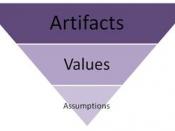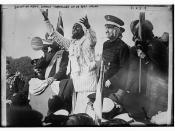Organizational Culture
How do we as leaders change an environment that appears to be detrimental to allowing our soldiers to "be all they can be"? Making policies, issuing directives and establishing doctrine attempt to attack the issue, but what we really want to do is change the way the Army thinks. We want to change the Amy's culture. Organizational researcher Edgar Schein points out that an organization's culture is a pattern of assumptions judged as a valid way to perceive, think and feel as the organization deals with problems.1 Hence, the Army's culture is its personality. It reflects the Army's values, philosophy, norms and unwritten rules. Our culture has a powerful effect because our common underlying assumptions guide behavior and the way the Army processes information as an organization. When I use the word culture, I am referring to both the Army's overall culture and the many subcultures it comprises.
Each division, brigade, battalion or agency has a unique subculture contributing to the Army's overall culture. We all have walked around a unit area and felt that the way things looked, the way people treated us and the manner in which business was conducted reflected a certain way of thinking. We were experiencing the
unit's organizational culture. We often overlook the powerful effect of the Army's culture, however, because we are unaware of the unseen, unstated or underlying assumptions. Four basic assumptions that guide the way an organizational culture forms am useful in analyzing our culture.
Frist, who is in control? Is it the unit or the environment? Organizations, just like individuals, vary in the extent to which they believe they have control over their own fate. As I visit units throughout the force, it is apparent some units believe and operate as if they are masters of their destiny.


